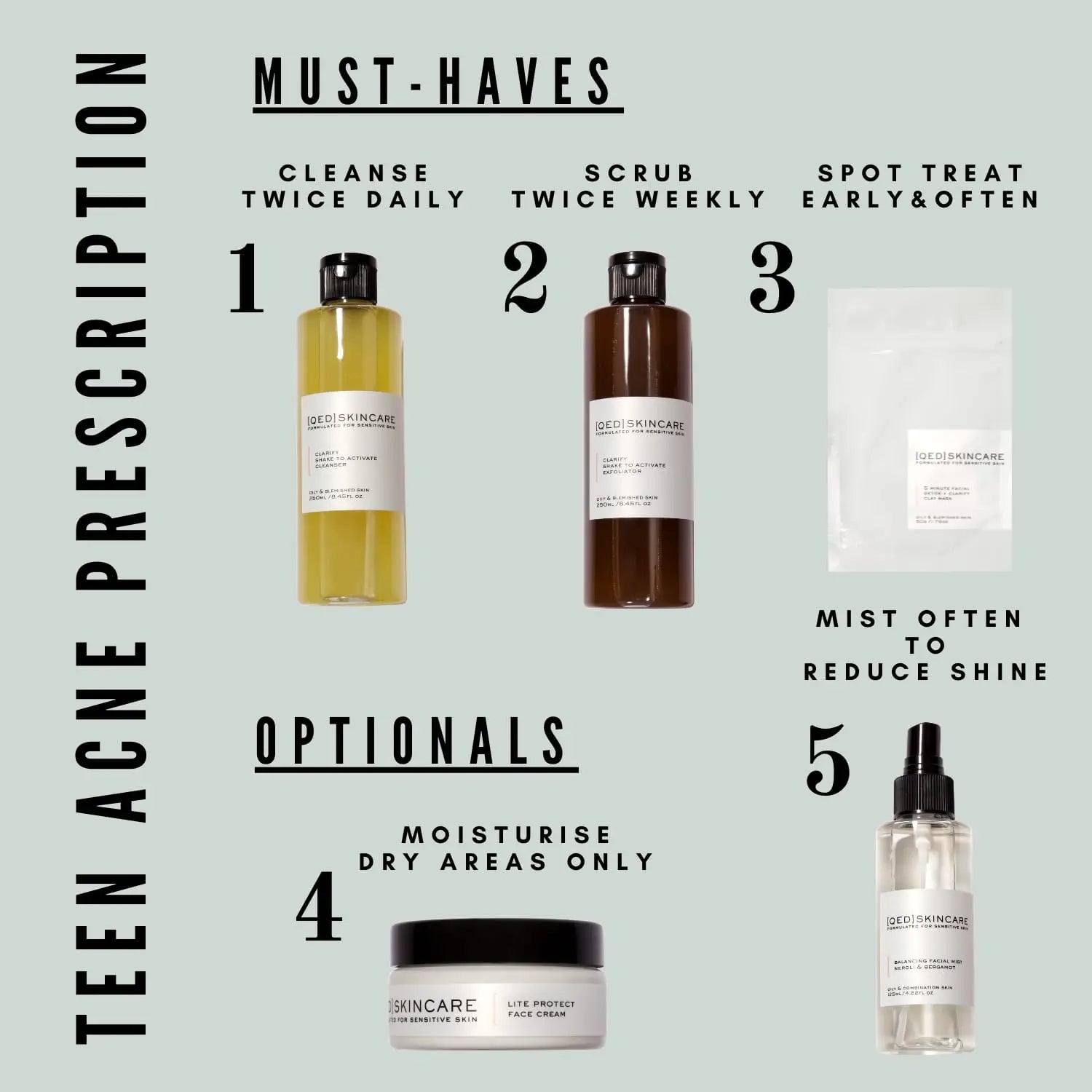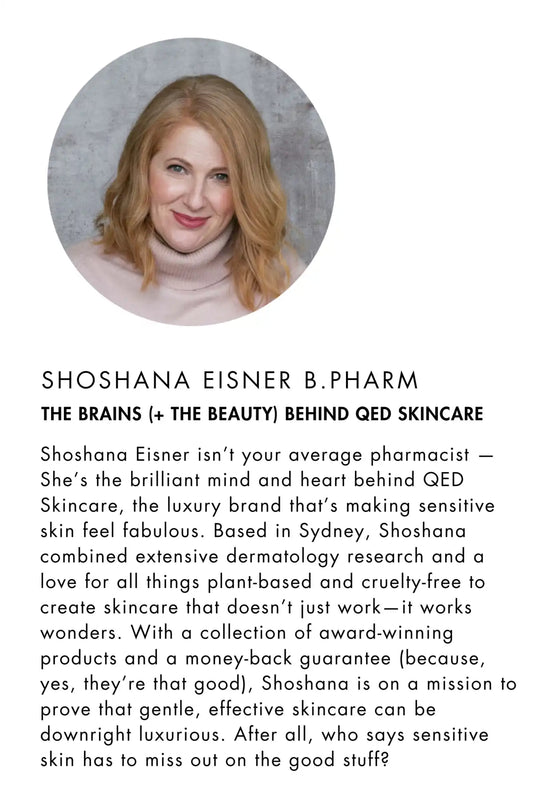HOW TO MANAGE TEEN ACNE
As if teens don't have enough to contend with, adding Acne into the mix can be deeply distressing for our poor adolescents, having us reach for anything and everything that promises to be the golden elixir to curing teen acne.
The bad news is, despite many products promising to be, there is NO golden elixir nor is there any one singular thing that will cure acne. HOWEVER, the good news is that there are steps that can be taken to help prevent and manage adolescent acne in order to limit distress all round.
As a Pharmacist but most importantly as a mother of teen boys, I have much experience managing acne in adolescents. I understand the distress it can cause and the urge to find a "quick fix" which more often than not are short term fixes that don't address underlying causes nor achieve long term results.
Below, I have listed my top 9 tips for how to treat and manage teen acne based on my own experiences and those of my clients.
Firstly, what is Acne?
Acne is a skin condition that occurs when hair follicles become clogged with oil and dead skin cells. It often causes whiteheads, blackheads or pimples, and although most commonly appear on the face and forehead, it is also very common to develop Acne on the chest, upper back and shoulders.
Although Acne is most common among teenagers, it can affect people of all ages and does have a habit of popping up when you least expect it.
1. Hands off!
I know you know this one ... Do not touch or pick at pimples - this will definitely make them worse, lead to infections and may cause permanent scarring. Rather, use an appropriate spot treatment as soon as possible. QED Skincare's 5 minute Facial - Detox + Clarify Mud Mask, is a brilliant spot treatment. It's anti-inflammatory effects immediately takes away redness and painful swelling. Applied early & regularly, it will dramatically speed healing & prevent further break-outs.
For emergencies, when you have a giant whitehead on your face, please check out my guide to Safe Squeezing, the link is at the bottom of this page.
2. Choose a gentle cleanser
There may be temptation to go for an aggressive cleanser, something that will "scrub" the face clean. Avoid super-lathery cleansers which will make your skin feel tight. They are actually stripping your skin. This can cause your skin to think it is under attack and produce more oil. Instead choose products that are designed to re-balance oily skin. You don't want to strip all oil from your skin as that can cause your skin to produce more oil. Also, many super-strong anti-acne cleansers can force your skin into a combination situation, where you end up with dry patches & oily patches. If you end up with combination skin as a result of your cleanser, it is a sign that this is not the cleanser for you.
3. Exfoliate, but not too much!
It is so tempting to exfoliate often when your skin is oily. Not only may it cause your skin to produce more oil. It may also make your skin more sensitive. I highly recommend exfoliating no more than twice a week to help remove excess skin cells and blocked pores, therefore, avoiding further build-up.
Be gentle when removing water from your face and treat it with respect. Your skin will thank you for it. And please make sure you always use a clean towel!
4. Embrace oil in your cleanser
May sound odd but, the RIGHT oils are actually your friends and these GOOD oils will help remove the BAD oils without penetrating your skin to cause further irritation.
5. Beware of temperature
Rinse the face with warm water only. Very hot water can trigger sensitivities and open pores to release more oil, which you definitely want to avoid. Too cold water can trigger sensitivities. Temperature is really important!
6. Don't sleep with make-up on
If you wear makeup, make sure you clean it off every night with a gentle cleanser. Sleeping with makeup will clog the skins pores and cause acne breakouts. If possible, have a few "foundation" free days in order to give your skin a rest and always make sure that foundation is applied with a clean sponge or brush as these are popular breeding grounds for bacteria and are easily contaminated.
7. Don't over moisturise
This requires discipline but it is so very important to ONLY apply moisturiser to the dry areas. The oily areas of your face are already producing enough moisture all by themselves so leave these areas alone.
8. Beware of the hair
Breakouts around the hairline are very common. Your hair product could be the culprit as it can block the pores on your face. After you put product in your hair, try to hold the hair away from your skin until it dries. Also make sure you clean your skin well if any hair product gets on it.
For the guys, acne also loves beards and facial hair so ensure this area is not avoided during cleansing. If you’ve started to shave, use care to avoid nicking pimples. When dealing with acne, an electric razor may work better than a razor blade.
9. Get a specialised facial treatment
You're never too young to learn about good skin hygiene and management from a professional and I'm a big fan of a teen facial with a professional. I had my first facial at 13 and adopt the same practices today as i did as a teen and these very same principles have helped me formulate many QED products.
A specialised teen facial will assist in pushing out deep congestion, help soothe inflamed skin and generally help boys & girls address the changes in their skin.
At what point should you seek further intervention?
If despite following these steps, your acne is not improving, it may be time to see your GP. Persistent acne is caused by internal factors, primarily hormones. The right skincare can help in these situations and should always be maintained, but sometimes it's simply not enough to deal with sheer force of adolescent hormones. Your Doctor has many prescription options to choose from in order to get your skin under control.
You may also be interested in :
To squeeze or not to squeeze. A guide to Acne & Pimples
5 Steps to safe squeezing
Shop the best skincare for Oily & Break-out prone skin



